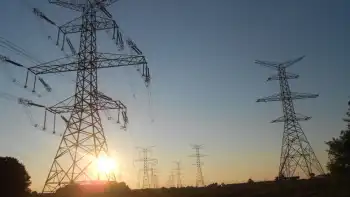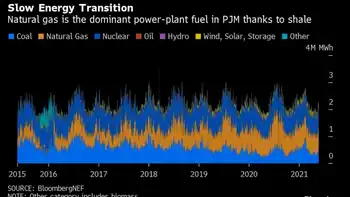Charging EVs can be cheap — or not
By Associated Press
Electrical Testing & Commissioning of Power Systems
Our customized live online or in‑person group training can be delivered to your staff at your location.

- Live Online
- 12 hours Instructor-led
- Group Training Available
It depends on what kind of electric car you buy, the wiring in your home and how quickly you want to juice your ride.
Electric cars are powered by batteries that are charged by plugging them into a standard wall socket or a more powerful charging station. The charging station will cut your charging time roughly in half, and reduce the chance you'll trip a circuit in your home. But it will likely cost $2,000 or more, including installation. The price will rise if you need a new electrical panel, which could add another $2,000.
The main thing to consider is how you are going to use your electric car.
If your commute is short, or there's a charging station near your office, you might not need much of a charge at home. You can get away with topping off your battery overnight.
A standard 120-volt wall socket will give a car about five miles of driving for every hour of charging. That means if you had a 40-mile round-trip commute you'd be able to charge in eight hours.
If you deplete your battery all the way most days, a charging station that is connected to a 240-volt socket, like ones used for most electric dryers, could be worthwhile.
The $41,000 Chevrolet Volt and the $33,000 Nissan Leaf are set to go on sale next month. Buyers qualify for a federal tax credit of $7,500 and additional state and local subsidies in some states.
The two cars have different batteries, and different charging requirements:
• The Volt has a relatively small battery because it also has a gasoline-powered generator that powers the car when the battery runs out. Chevy expects the car to be able to go 25 to 50 miles on electricity and then an extra 300 miles or so with the help of the gas motor. A standard socket will fully charge the Volt in about eight hours. A charger will do it in four. Chevy recommends drivers first try to get by without a charger.
• The Leaf is powered entirely by electricity, and therefore has a much bigger battery. Nissan says the Leaf can go about 100 miles on a full charge. It will take 20 hours to do this with a standard outlet, and eight hours with a charger. Nissan strongly recommends a charger.
Installing a home charging station could take anywhere from a few days to a couple of months. It depends on the time it takes to get a local work permit and to have the charging station inspected after installation. The installation itself should only take a few hours.
Whether you go for a charging station or not, carmakers and utilities want your home checked out to make sure the wiring in your house and in your neighborhood can handle the extra load. Plugging into a regular socket that serves other appliances will almost certainly trip your circuit breaker. The extra electricity demand from a home charger can overwhelm small neighborhood transformers and kill power to a whole block.
The 2,500 kilowatt hours used by electric car charger would add about 20 percent to a home's average consumption of 11,000 kilowatt hours.
Utilities and carmakers may have a tough time getting the first wave of buyers to heed their advice. These early adopters are used to wrestling with new technology, and they like to do things their own way.
Scott Little, 62, an experimental physicist from Austin, Texas, has reserved a Nissan Leaf, but he's not going to install the charger because of what he calls its "ridiculous" price. "The idea of paying $2,000 for what amounts to a dryer plug irritates a guy like me," he says. Instead, he's going to use his wall socket for a while, and eventually install chargers himself at his home and his farm, 40 miles away.











